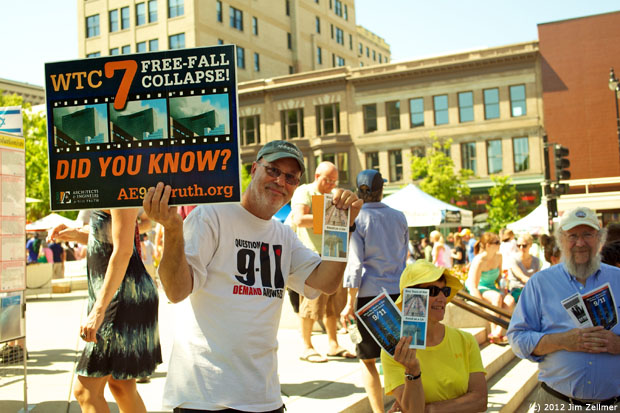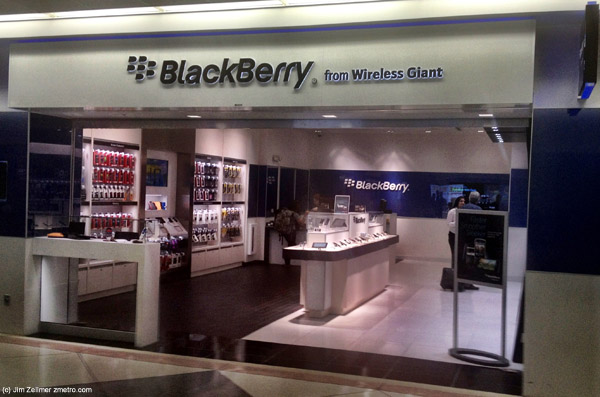For almost a century, the world of economics and finance has been dominated by randomness. Much of modern economic theory describes behaviour by a random walk, whether financial behaviour such as asset prices (Cochrane (2001)) or economic behaviour such as consumption (Hall (1978)). Much of modern econometric theory is likewise underpinned by the assumption of randomness in variables and estimated error terms (Hayashi (2000)).
But as Nassim Taleb reminded us, it is possible to be Fooled by Randomness (Taleb (2001)). For Taleb, the origin of this mistake was the ubiquity in economics and finance of a particular way of describing the distribution of possible real world outcomes. For non-nerds, this distribution is often called the bell-curve. For nerds, it is the normal distribution. For nerds who like to show-off, the distribution is Gaussian.
The normal distribution provides a beguilingly simple description of the world. Outcomes lie symmetrically around the mean, with a probability that steadily decays. It is well-known that repeated games of chance deliver random outcomes in line with this distribution: tosses of a fair coin, sampling of coloured balls from a jam-jar, bets on a lottery number, games of paper/scissors/stone. Or have you been fooled by randomness?
In 2005, Takashi Hashiyama faced a dilemma. As CEO of Japanese electronics corporation
Maspro Denkoh, he was selling the company’s collection of Impressionist paintings, including pieces by Ce?zanne and van Gogh. But he was undecided between the two leading houses vying to host the auction, Christie’s and Sotheby’s. He left the decision to chance: the two houses would engage in a winner-takes-all game of paper/scissors/stone.
Recognising it as a game of chance, Sotheby’s randomly played “paper”. Christie’s took a different tack. They employed two strategic game-theorists – the 11-year old twin daughters of their international director Nicholas Maclean. The girls played “scissors”. This was no random choice. Knowing “stone” was the most obvious move, the girls expected their opponents to play “paper”. “Scissors” earned Christie’s millions of dollars in commission.
The Scene: Madison, Saturday, 9 June 2012





Lombardi & The Wisconsin Recall
Jim VandeHei and Robin Bravender and David Catanese:
Vince Lombardi, the man who taught Cheeseheads to think with clarity about the severe consequences of victory and defeat, once offered this gem about life: “Show me a good loser, and I’ll show you a loser.”
Scott Walker last night showed Wisconsin and the country a bunch of pretty good losers in his recall election triumph. In the spirit of tell-it-like-it-is St. Vince, POLITICO offers up a guide to the top five: Democrats, President Barack Obama, public unions, conservative critics and money monks.
Here’s why:
“If winning isn’t everything, why do they keep score?”Well, politics is all about keeping score — and Democrats suffered a good old-fashioned beatdown. They invested seven months of effort, tens of millions of dollars, exhausted volunteers to collect nearly 1 million signatures. Then, they litigated an extremely divisive primary and spent millions more — all to get back to exactly where they were when they started: with Walker on top.
VandeHei is a UW-Oshkosh graduate.
The Default Decade
Henry Ford would have none of it. He wasn’t about to pay royalties on someone’s made-up patent, nor was he in the mood to limit his potential for production. Even in the earliest days he knew that mass production would be the key to driving down the prices of his cars and thereby making them truly affordable to all.
A lawsuit brought by the ALAM to force Ford out of business, or make him liable for millions of dollars in royalties, went on for years. In late 1909, just as the Model T was starting to sweep the nation, Judge Charles Hough of the Circuit of the Southern District of New York ruled against Ford. Ford was so dejected, he came close to selling his company to General Motors. Instead, he regrouped, posted a $350,000 bond and appealed the case.
In 1911, for the final trial, Ford built an automobile from Selden’s patent application and proved without a shadow of a doubt that it would not run. Moreover, as Ford pointed out, every manufacturer was using Otto’s version of an internal combustion engine, not Brayton’s. This time Ford won, and the auto industry in America became part of a true free enterprise system.From there came the moving assembly line. Then Ford determined that, if America was going to build for consumers, then people needed to make more money to buy things. There were other business reasons, but he did double wages for his workforce; and the American Century started in earnest.
Does government have a role in the 21st century?
The big economic question in much of the world today is usually framed as the fight between advocates of austerity and advocates of growth. But another way to view the debate is as a contest between those who think that 21st-century government can be effective and those who don’t.
Indeed, some of America’s most outspoken capitalists have begun to fight the “Buffett Rule,” which would set a minimum tax level for millionaires, and other calls to raise taxes for those at the very top, with the argument that money is best left in the bank accounts of the superrich because they are more effective at using it than the state is.
“I’m a job creator. I’m one of the guys who can help us out. I’m a Silicon Valley guy who can invent and create,” T.J. Rodgers, chief executive of Cypress Semiconductor, told me. “If you tax me more, I will either give less to charity or I will fund venture companies less, or I will sell the stock in my own company or other companies I own, like Intel and Google. I will do one of those three things to return the money to the government.”
Air Asia’s Tony Fernandes on Starting an Airline, Post AOL-TimeWarner with $250,000
Founder Tony Fernandes recently spoke at Airbus. He mentioned a few keys to their success: growth where competitors weren’t (non-consumption): 50% of their routes were never flown before, 25 minute turns and they fly their planes 14 hours daily.
Part 2:
A great startup story. Air Asia’s website.
Black Swan? A Blackberry Store

I snapped this photo in Charlotte while quickly changing planes recently. Its presence caused me to do an about face as I had not previously seen a Blackberry branded retail store – nor did I ever expect to encounter such a place.
RIM was once a high flyer, but, via this informative Horace Dediu chart, has been unable to address the iPhone led smartphone disruption.
Black Swan Theory.
Brian S. Hall has been following the Smartphone wars for some time.
Qualities of an Entrepreneur
According to Musk, successful entrepreneur come in all sizes, shapes and flavors. Some things that are important are an obsessive nature with respect to the quality of the product, and really liking what you do, he says.
Public health: Raised resistance
A researcher works on new antibiotics to combat bacteria, which are becoming an increasingly globalised threat as international travel increases
Every morning when she arrives at Hygeia hospital in Athens, Helen Giamarellou, a senior doctor, starts her day by walking the wards, checking on hygiene and quizzing staff as she attempts to prevent a deadly infection spreading across southern Europe.
Even before the financial crisis added to the difficulties, Greece was on the frontline of what she calls “a killer strain” of the Klebsiella pneumoniae bacterium resistant to the carbapenems, a class of potent “last-line” antibiotics used to treat infections when all other drugs fail to work.
Since 2009, when it was first detected in Europe in nearly half of the dozens of hospital patients tested, the strain has spread from Greece to many other EU countries, threatening the treatment and survival of those with problems such as bloodstream and urinary tract infections.
How exactly did the legal activist – blind, and with a broken leg – escape house arrest?
By Kathrin Hille and Jamil Anderlini in Beijing:
Dongshigu is a small village in the eastern Chinese province of Shandong. Nestled amid apple orchards, peanut fields and cornfields, the scattering of houses – built from the pale rocks strewn over the nearby hills – can appear almost idyllic on a nice day. But at the corner of the narrow country road that leads into the village, two men block the way. “What do you want?!” one barks through our car window, before brusquely waving us away. Similar-looking men – plainclothes policemen in their 40s, tall and orderly dressed – stand on several streets branching off the highway. They are guarding against the spirit of a man who has long since gone: Chen Guangcheng, the blind legal activist whose desperate dash for freedom has made global news, arrived in New York last weekend.
Chen Guangcheng arrives in New York, last weekend
Chen Guangcheng’s daring escape from imprisonment in his farmhouse to the US embassy in Beijing – forcing the world’s two biggest powers to negotiate over his fate – is already the stuff of legend. In his home village, he became a heroic figure a long time ago.“He held my hands once,” says one old lady who met Chen seven years ago. Resting from work in the fields near Dongshigu, she recalls visiting Chen in 2004 because he was supporting women against violent family-planning officials. “He helped my daughter and he listened to our story,” she says. “He can’t see, but he feels.” It is a fitting characterisation of a man who has broken out of the confines of his disability, narrow social convention and a repressive political system through his sensitivity, empathy and sheer will power.
Chen was born the fifth son of a farmer, and was robbed of his eyesight by a fever before he was a year old. The boy all but ignored his handicap. “He was known in his village as a naughty boy who would always climb trees and walls even though he was blind,” says Bob Fu, the Chinese-born pastor who runs the US-based NGO ChinaAid.